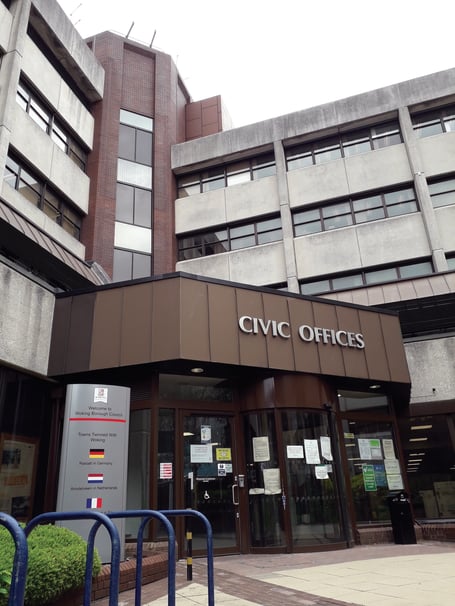WOKING Borough Council has crumbled under the sheer weight of its crippling £2billion debt, as Government appointed commissioners have been sent in.
The borough council had amassed the billions in debt as part of a failing investment strategy that has spiralled out of control leading to the situation it is in now – its annual interest repayments are more than it brings in from council tax.
Today, the Department of Levelling Up, Housing and Communities (DLHUC) has sent in three commissioners over the “serious concerns that have been raised regarding the exceptional level of financial and commercial risk” the authority exposed itself to, “as well as its approach to strategic financial decision making and debt management”.
The council might also switch to full all-out elections every four years as that “can facilitate stable, strategic local leadership, delivering a clear programme for which it can be held to account by the electorate, and having the time to tackle some of the longer-term issues its communities might face”.
“The absence of such elections is often a consistent feature of under-performing councils and a common thread through many council interventions”, letters from DLUHC to the council read.
In a letter to the borough’s chief executive, DLUHC also criticised its “failure” to provide assurance “on the adequacy of the actions that it is taking to address the issues or provide assurance of its capacity to take the necessary action, considering the scale and pace of the response required.”
A Government report titled ‘Woking Borough Council: External assurances review’ published today (May 25) said: “In conclusion, as a result of past investment decisions, the Council has failed its best value duty leaving an unprecedented legacy for the current Leadership Team, which they have not been able to address to prevent financial failure.
“It is evident that the Council does not have the capacity and expertise to address the scale and complexity of these issues, and so it will continue to fail its best value duty.
“Resolving the issues and moving the Council back to a place of financial stability and value-for-money for the taxpayer will require significant support, including statutory oversight.
“There is a need for commercial and financial support including capital, legal and forensic accounting specialists.
“The Council will also need additional leadership capacity to help deliver this swiftly [content redacted for commercial sensitivity].
“There are critical decisions that need to be taken in the next 2-3 months, for which immediate expert support is required.”
Within six months, the council must now prepare and agree a credibly resourced “Improvement and Recovery Plan” to the satisfaction of appointed commissioners.
The plan should set out “measures to be undertaken, together with milestones and delivery targets against which to measure performance, in order to deliver rapid and sustainable improvements in governance, finance and commercial functions”.
DLUHC said it had been closely monitoring the concerns around Woking Borough Council’s commercial activity and financial situation.
Relative to its size, Woking is “the most indebted local authority” in the UK according to DLUHC.
DLUHC documents show that, as of December 2022, it had £1.9bn in borrowing compared to a core spending power of £14m.
It has two main companies, ThamesWey Group and Victoria Square Woking Ltd, that generated the majority of its debt – through associated housing and regeneration schemes
In January 2023, DLUHC commissioned an External Assurance Review, covering governance, finance and commercial issues, stating that it was “in the territory” of issuing a section 114 notice as part of setting its 2023/24 budget.
In a letter to Julie Fisher, chief executive of Woking Borough Council, Suzanne Clarke, deputy director at the Local Government Finance Stewardship, said: “After careful consideration of the evidence provided by the reviewers and officials, the Secretary of State considers that there is a pressing case for urgent government action to protect the interests of the residents and taxpayers of Woking, as well as national taxpayers.
“The financial challenge is acute, and the Secretary of State is concerned that key decisions need to be taken in the coming weeks and months to secure Woking’s financial position, as well as provide assurance that your authority is taking all steps necessary to comply with its best value duty.”


.jpeg?width=209&height=140&crop=209:145,smart&quality=75)

Comments
This article has no comments yet. Be the first to leave a comment.